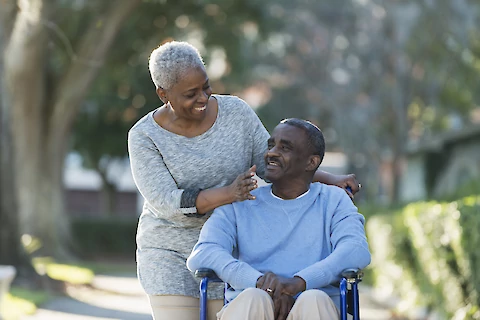
Experiencing a stroke can be a life-altering event for seniors, and it often comes with numerous challenges for the individual and their family. As an adult child, you might find yourself in the role of a caregiver, trying to navigate this new reality and support your parent's journey toward recovery.
We have practical tips and advice catering to the physical and emotional aspects of your parent's recovery.
Mobility Assistance
One of the most significant challenges stroke survivors face is regaining their mobility. Depending on the severity of the stroke, they might experience difficulties with balance, coordination, and muscle strength. As a caregiver, you must be patient and encouraging as your senior parent works to regain their independence.
Consider investing in assistive devices such as walkers or canes to make moving around more manageable. Additionally, consider modifying the home environment to ensure safety and ease of access. This may include installing grab bars in the bathroom, rearranging furniture, or adding ramps for wheelchair access. Adjusting to new mobility limitations can be frustrating, so provide ongoing support and maintain a positive attitude during this process.
Communication Strategies
Stroke survivors might also face communication difficulties, such as aphasia, which affects speech and language comprehension. To effectively communicate with your senior parent, it's crucial to be patient and understanding. Utilize simple language, speak slowly, and maintain eye contact to help convey your message. Visual aids, such as pictures or gestures, can also facilitate communication.
If your senior parent is struggling with speech, encourage them to practice speaking or seek help from a speech therapist. In the meantime, develop a non-verbal communication system to ease the frustration that may arise from any miscommunication.
Emotional Support
The emotional challenges that arise after a stroke can be just as taxing as the physical ones. Depression, anxiety, and frustration are common feelings experienced by stroke survivors. Providing emotional support is crucial as a caregiver in helping your senior parent cope with these challenges.
Active listening is vital when addressing their concerns and feelings. Offer reassurance and empathy, acknowledging the struggles they're going through. Encourage them to socialize with friends and family, as a strong support network can help bolster their morale during this difficult time.
Available Therapies and Rehabilitation Programs
Various therapies and rehabilitation programs can help stroke survivors regain their independence and improve their quality of life. Physical therapy focuses on improving mobility and strength, while occupational therapy addresses daily living skills such as dressing and eating. Speech therapy, on the other hand, can help with communication and swallowing difficulties.
In addition, consult with your parent's medical professionals to identify the most suitable therapy or rehabilitation program for their specific needs. Research local options and consider involving yourself in their therapy sessions to learn how best to support them and offer encouragement.
Senior Helpers Mesa Offers In-Home Support After a Stroke
Helping your senior parent adjust to life after a stroke can be a challenging but fulfilling journey. Patience and understanding are essential, and proving that you're there for them can make all the difference.
If you live in Mesa, Apache Junction, Scottsdale, Fountain Hills, or Cave Creek and are looking for professional help and support in caring for your senior parent post-stroke, don't hesitate to contact Senior Helpers Mesa. Our team of compassionate caregivers can provide the guidance and assistance needed to ensure your parent's recovery journey is as smooth as possible. Let's talk about what you and your senior loved one need to facilitate their recovery after a stroke. We can support caregivers through respite services or take over full-time care.